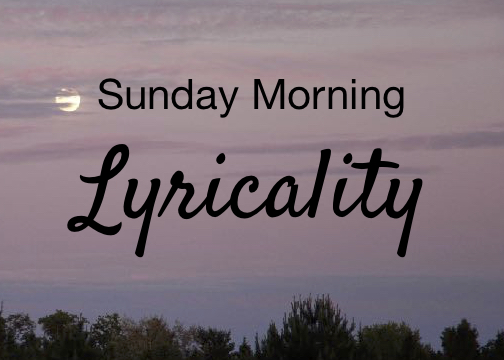Welcome to Sunday Morning Lyricality, featuring a weekly song or poem by a Minnesota writer, followed by a prompt to help you write your own poem.
How rich this poem is, how different in feeling from the mundane task, which could have been described simply by stating, “I took the rutabaga out of the refrigerator, peeled it and boiled it in a large pot.” Instead, the poet addresses a vegetable, showing us the deep inner world that informs and makes meaning from outer experience. The “I” in this poem contemplates the vegetable and its relationship to her mother, wanders into specific memories of Mother, then compares the object to a litany of cherished family heirlooms, taking us on a journey through an important relationship.
Hint: If you’re reading this on a phone or tablet, you may want to hold your device in landscape view, to see the correct line breaks.
Tracy Rittmueller
To the Rutabaga
Susan Thurston
In memory of Mary Elizabeth Nelson Thurston
Basketed for weeks with haughty apples and portentous squash
you look feverish and expectant, waxed cream and lavender.
I know why I bought you. You were her favorite. Always slipped
into soothing spaces: disguised as potato in stew, nibleted
within chicken soup, mashed into a buttered sweat. Her private joke.
Fools’ potato to our fools’ gold expectations. Farm wife’s tofu.
You bring thick memories heaped like the plates she served
hired men, threshing crews, tired spouse, grown sons, impatient
daughter. Forgotten for months at the back of the crisper, you expect
little, and only vigorous peeling from me. I turn you in my hand like
A fragile family Yule ornament, or a Fostoria goblet, or the Dresden
candy dish, passed on during a stage of allotment. Her fair-minded intent
for each child to glean portions from the abundant beauty she cherished.
I rest you against the last of the good heirloom tomatoes.
You root reflection captured by the sharpened knife’s blade. And–then
I fill the largest pot from her kitchen with water, and set it on to boil.
*****
Susan Thurston is a writer, educator, and professional communicator whose work has been published frequently including in the Minneapolis Star Tribune, Los Angeles Review, Garrison Keillor’s The Writer’s Almanac, Minnesota Monthly, Fox Cry Review, Rag Mag; several anthologies including Open to Interpretation: At Water’s Edge (Taylor & O’Neill, 2012), Low Down and Coming On (Red Dragonfly Press, 2010), Tremors Vibrations Enough to Rearrange the World (Heywood Press, 1995); and the chapbook Wild Bone Season (Heywood Press, 1996). Her novel Sister of Grendel was published by The Black Hat Press in 2016. She coauthored Cooking-Up the Good Life (University of Minnesota Press, 2012) with local-food movement leader Chef Jenny Breen. As part of earning her master’s degree from Hamline University, she spent time exploring the influence of gender on the creative process with the game-changing writers Carol Bly, Patricia Hampl, and Meridel Le Sueur. Read her San Miguel Writers’ Conference and Literary Festival winning poem here.
Want to write your own Mother’s Day poem?
Are you wondering how to write a poem for Mother’s Day? First, choose an object in your possession that you associate with your mother, or a mother figure, and consider what you might do with that object. Would it make sense to cook it, polish it, move it, repair it, or give it away? Then make three lists. List descriptions of the object and how or why you acquired it. Then list what your mother or mother-figure did with the object and how she regarded it or felt about it. Finally, name the feeling that comes up when you contemplate the object (such as nostalgia, loneliness, tenderness, or regret), and list other objects that conjure the same feeling.
Use your lists to make a first draft. As you write, address the object as “you,” and state your practical steps in interacting with the object. Between the first few and last couple of steps, sandwich in your lists. For inspiration, re-read “To the Rutabaga” and notice what the poet says to the rutabaga, and that while the words about her mother and the rutabaga are in past tense, “you were” … “slipped” … “disguised,” the actions the poet performs with the rutabaga are in present tense, “I turn you” … “I rest you.”
As you revise, shape your poem into lines that reflect your emotion or mood about the object. Use longer lines to re-create the slow, deep breathing of luxurious reminiscence, shorter lines to evoke intense emotion. Two-line stanzas are called couplets, and might represent a harmonious, balanced relationship. Try out other stanza shapes (of three, four-, or five lines) if it feels like couplets aren’t working for your poem. And if your relationship with your mother was injurious, you might try one-line stanzas, to capture a sense of isolation and loneliness.
